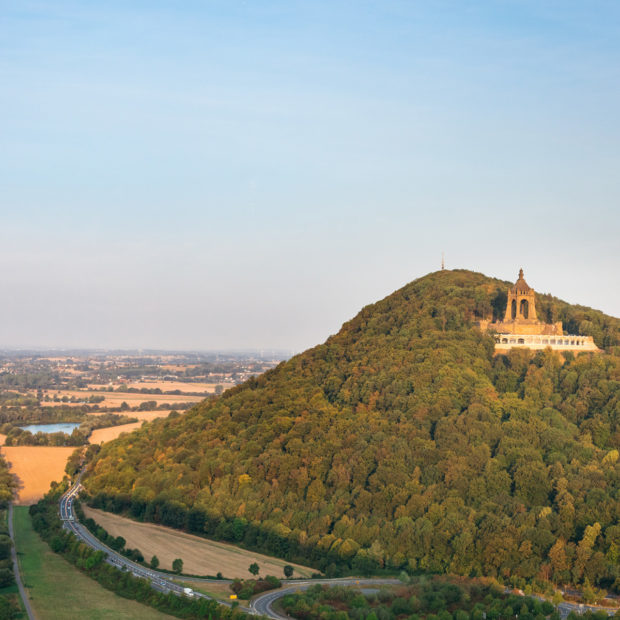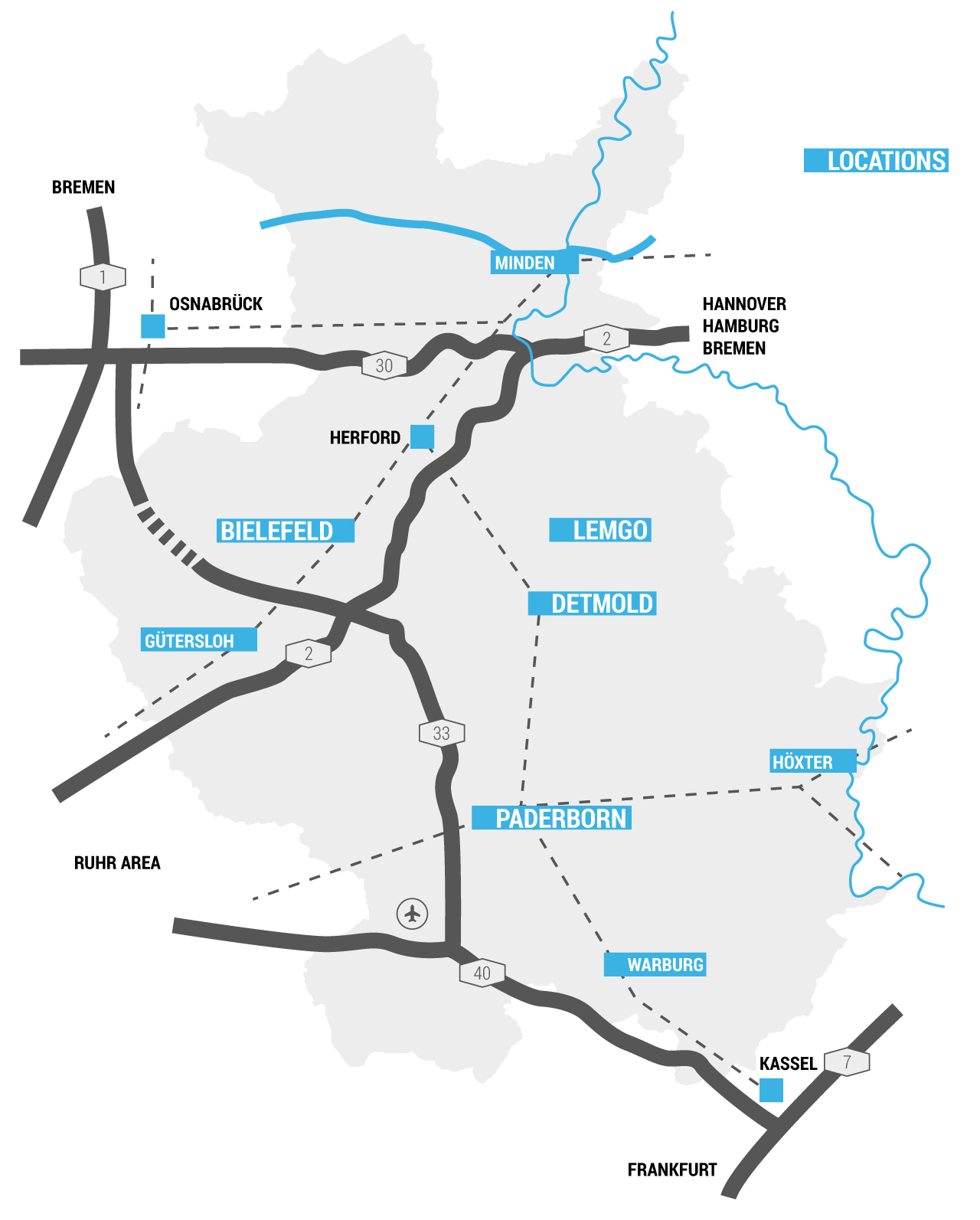
As Germany’s region in the north of North Rhine Westphalia, OWL is located conveniently close to Berlin, Hamburg, Cologne and Düsseldorf. OWL has a population of around 2.05 million and major cities include Bielefeld, Paderborn, Gütersloh, Herford, Minden, and Detmold. The Teutoburger Forest spans across the area.
With over 120,000 companies and a gross domestic product of EUR 60 billion, OstWestfalenLippe is one of the strongest commercial and technology centers in Germany, providing headquarters of many major transnational companies including Miele, Dr. Oetker, Melitta, Bertelsmann, Claas, Phoenix Contact, Weidmüller, and more.
Science and industry have been partnering all along in OstWestfalenLippe and are driving innovation as illustrated in the technology network it’s owl where more than 200 companies, research institutions, and organizations develop solutions for intelligent products and production processes.
Historic Cities and Rural Charm
OstWestfalenLippe is home to several cities with beautiful historic centers dating back to the Middle Ages while the surroundings offer rural appeal and opportunities for outdoor leisure activities. For example, the central landmark of Bielefeld is the Sparrenburg, which is a mighty fortress dating back to the 13th century. If you take a bike ride outside Detmold to explore the surroundings, you can visit Hermannsdenkmal, commemorating the Battle of the Teuteburger Forest in the year 9 AD. It’s Germany’s tallest monument. Paderborn was founded in the 8th century and Charlemagne visited the town several times and ordered the construction of the Pfalz and the cathedral. Lemgo – the 800 year old renaissance town – is one of the most architecturally beautiful towns in Germany.
Study in Germany Links
Strong High-Tech Region
OstWestfalenLippe is among the strongest industrial regions in Europe. A large number of globally operating companies are headquartered in the region, including Bertelsmann, Claas, Dr. Oetker, Melitta, Miele, Weidmüller, and many market-leading hidden champions. Nowhere else in Germany do so many companies make billions in sales every year. One reason for their success is cooperation between companies, higher education and other players like foundations. They know how to use network effects to their benefit.

Pickert and Pumpernickel
If you are looking for regional specialties, start with a “Pickert”. It’s similar to a very nourishing pancake made with grated potatoes. Pickerts are a specialty of the district of Lippe, where they developed from a traditional meal for less privileged people. Nowadays Pickert is served with butter, jelly, plum jam or liverwurst.
Pumpernickel has its origin in the region, too, and is a heavy, slightly sweet rye bread traditionally made with sourdough starter and coarsely ground rye.
When it comes to beer, many great beer specialties come from the region: Krombacher, Veltins, Paderborner, Detmolder, Warsteiner etc. Prost!
Soccer, Spas and Medieval Festivals
Despite stubborn rumors that the city of Bielefeld does not exist, it has been around since the Middle Ages. The Sparrenburg, the central landmark of the city, is proof to the city’s long history and a mighty fortress. In July during the medieval festival and markets you can encounter fire-eaters, try out suckling pork on a spit or make your own pottery.
Or if you prefer to mingle with the locals, cheer on the soccer teams DSC Arminia Bielefeld or SC Paderborn 07! And the Teutoburger Forest not only offers great surroundings for hikes and bike rides, but also relaxing spas and medicinal baths.

